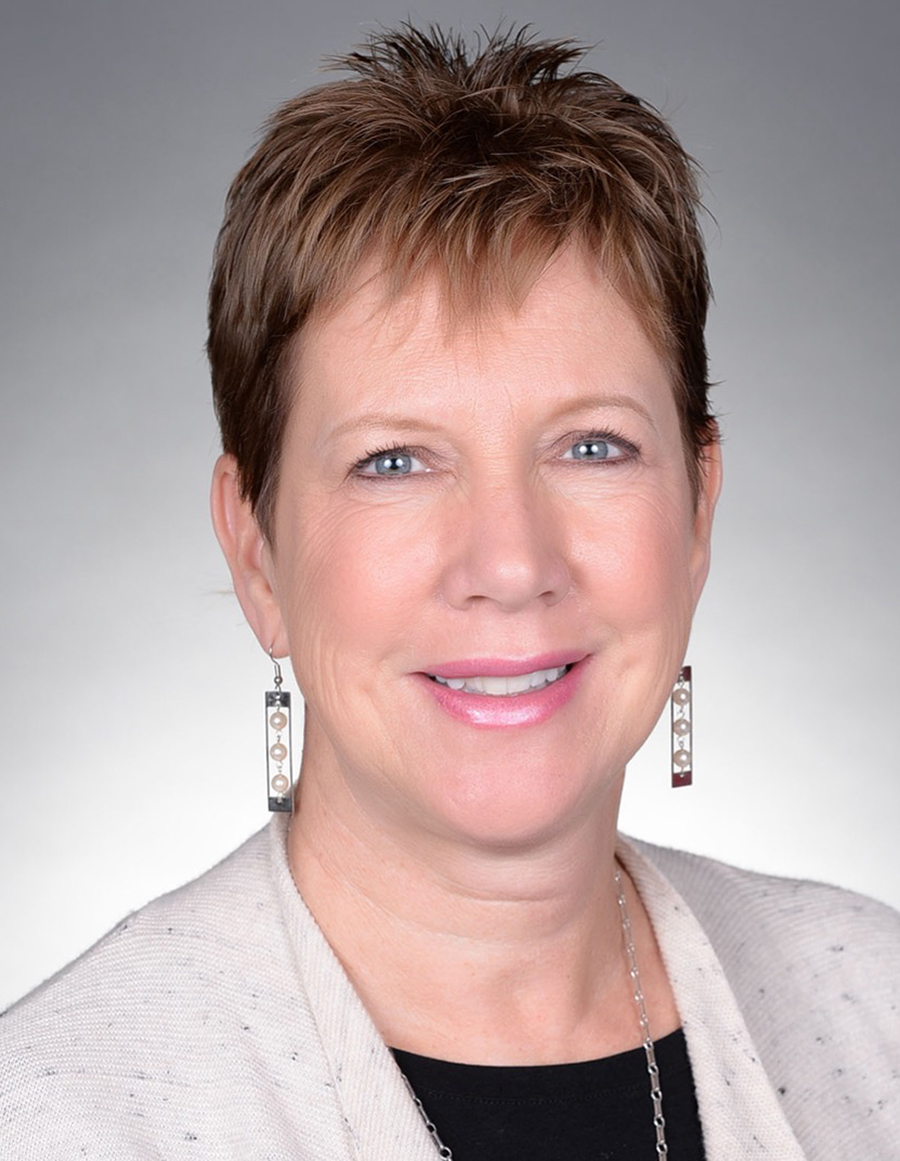Moral Injury and Trauma in Nursing
When Ethan was 15 years old, he was diagnosed with osteogenic sarcoma. He underwent chemotherapy and was deemed cancer free for nearly 10 years. Maria, an advanced oncology certified nurse, worked closely with Ethan’s healthcare team throughout his treatment. She got to know Ethan, his sense of humor, and his dreams of becoming a child psychologist.
Now in his early 20s, Ethan developed leiomyosarcoma at the site of radiation, which is nonresponsive to treatment and negatively affecting his physical and mental well-being. Maria and the rest of the care team recognize that he needs hospice care.
Ethan’s parents believe that the chemotherapy regimen he received 10 years ago was a “miracle” treatment. They want him to receive the same regimen even though the team has explained that this is a different type of cancer and that the inappropriate treatment will only prolong Ethan’s suffering. His parents are adamant, pleading for one last try at treatment. Understanding that not allowing the parents to try the original treatment will cause them great moral distress, the attending doctor orders the chemotherapy.
Maria knows that Ethan’s old chemotherapy is not going to work and will be difficult. She also recognizes that his parents are suffering and want to do everything they can. In other words, both courses of action could cause harm.
Moral Distress and Moral Injury
Although Ethan’s diagnosis and his and Maria’s names were changed to protect their identities, their story is a real-world experience that depicts the very definition of moral distress in oncology nursing, ONS member Patricia Jakel, RN, MN, AOCN®, who recently retired from the University of California, Los Angeles (UCLA), Healthcare as a clinical nurse specialist, said.
Moral distress (https://www.aacn.org/clinical-resources/moral-distress) is a reaction to situations that threaten one’s sense of right or wrong. When oncology nurses repeatedly experience moral distress in situations like Ethan and Maria’s, it can progress to moral injury, Jakel said.

Moral injury (https://www.ptsd.va.gov/professional/treat/cooccurring/moral_injury_hcw.asp) is the long-term psychological, spiritual, behavioral, or social result of situations that go against your beliefs or values, including decisions you must make in which all of your options have negative outcomes. Oncology nurses most often encounter moral injury–inducing scenarios during end of life, such as believing a patient should have their loved ones with them during death, the use of futile treatments, or feeling uncomfortable with their lack of emotion when a patient dies.
Jakel explained that moral distress and injury are different from burnout or compassion fatigue, although the latter may be causative factors. Burnout relates to environmental stressors (https://doi.org/10.1188/16.ONF.103-109), such as inadequate supplies, heavy workloads, or poor management. With compassion fatigue, the experience is relational (https://doi.org/10.1002/nop2.1070); it is common when caring for people who are suffering. Moral injury and moral trauma (https://www.ptsd.va.gov/professional/treat/cooccurring/moral_injury_hcw.asp), however, come from threats to one’s deeply held belief systems.
Jakel described another situation where nurses were caring for an older patient with limited English proficiency whose family members insisted as serving as his translator and communicator. His family adamantly told the cancer care team that the patient must not be informed about his cancer diagnosis and that he should continue to receive treatment that the nurses considered futile, Jakel said. With his limited English, however, the patient said he wanted to die. But because he did not formally document his wishes, nurses had to perform CPR when he went into cardiac arrest. His life was saved, but he was unconscious, had multiple rib breaks, and was placed on a ventilator and feeding tube. The nurses caring for him experienced moral injury and trauma.

How Moral Injury and Trauma Affect Oncology Nurses
Moral injury and trauma can lead to significant consequences (https://pubmed.ncbi.nlm.nih.gov/21342420/) in healthcare professionals, including:
- Fatigue, anxiety, and irritability
- Sleep disturbance
- Loss of enjoyment and interest in life activities
- Chronic pain
- Post-traumatic stress disorder
- Suicide
Patient outcomes are also at risk when their care team experiences moral injury. Jakel explained how nurses may disengage and even avoid patient contact, becoming desensitized to their patients’ needs. They may develop poor clinical judgment, make medical errors, or avoid communicating with the cancer team, which contribute (https://pubmed.ncbi.nlm.nih.gov/18469615/) to higher morbidity and mortality.
Tools and Techniques Prevent and Manage Moral Injury
Oncology nurses need to have tools to cope with moral distress and injury. Jakel participated in a research project that trialed the Early Indicator Tool (https://pubmed.ncbi.nlm.nih.gov/31968085/), a team-based ethics protocol that encourages healthcare teams to routinely communicate care goals and support patients and families. Jakel also mentored oncology clinical nurses who conducted a pilot of the Provider Resilience app (https://pubmed.ncbi.nlm.nih.gov/27857259/), which provides tools to guard against burnout and compassion fatigue.
She said that UCLA Healthcare helps prevent moral distress among nursing staff by including them in rounds with physicians and advanced practice providers to discuss patients’ plans of care and potential ethical dilemmas. At UCLA Healthcare, Jakel said that anyone can call for an ethics consult, including the patient and family. She recommended that nurses be self-stewards and speak up when they have ethical concerns. Just talking about the issues with colleagues is a form of self-care, she said.
How to Build a Supportive Spaces
In her work as a psych–mental health advanced practice nurse for staff and faculty at The Ohio State University Comprehensive Cancer Center—The James Hospital in Columbus, ONS member Amy E. Rettig, DNP, MALM, RN, APRN-BC, creates a safe, caring, and healing environment where colleagues can talk through ethical and moral challenges in caring relationships.
“In my worldview, relationships and caring are the key drivers to our human existence,” Rettig said. Protection from negative consequences of moral injury requires both self-care and team-care strategies, she said, and praised the self-care benefits of how continual professional learning builds nurses’ confidence to speak with authority and advocate for patients. Team-care strategies can be as simple as listening to coworkers when they mention facing challenges like sleeplessness, over- or undereating, or being overly stressed.
“Checking in matters,” Rettig said. “In my opinion, there are no absolutes in health care—that is why it is called a ‘practice.’ Unless we talk together, we will get very wrapped up in our own heads, limiting us as people, teams, and communities.”
When interactions with patients or families produce stress, nurses must remember and respect their professional boundaries, Rettig said. “Remember that you are walking with others and not for, or in place of, them. Maintain respect for people as they lash out, but don’t own the lash. Recognize that they are in a painful space, and know that as an oncology nurse, you are strong enough to help them get back to themselves.”
How Oncology Nurses Can Lead Organizational Interventions
Rettig recommended exploring ONS’s Facilitating Intentional Conversations (https://www.ons.org/courses/facilitating-intentional-conversations-parts-1-and-2) program, particularly the Sustaining Purpose (https://www.ons.org/clinical-practice-resources/facilitating-intentional-conversation-guidelines-sustaining-purpose) videos and guide. The team-based approach allows colleagues to gather, breathe, check in on a specific topic, dive deeper into that topic, then check out with a takeaway.
“Sustaining Purpose helps us know that we are not alone in our work or our experiences,” Rettig said. “We have the chance to say out loud the effect that moral distress or trauma has on us. We discover the wisdom of self and team in these intentional, facilitated conversations. We are separate yet together at the same time.”
She explained that Sustaining Purpose empowers nurses and the healthcare team, regardless of levels of institutional support. “Each person at the table matters and can make a difference. All voices are important.”
Jakel cited evidence (https://pubmed.ncbi.nlm.nih.gov/34292917/) that nurse leaders who generate a culture of mattering (e.g., promoting strong relationships, explicitly expressing appreciation) provide another layer of protection for their staff. When combined with self-support, mattering culture may make a real difference in an oncology nurse’s life. See the sidebar for the factors that influence a culture of mattering.
“Oncology nursing is difficult, but the love and appreciation we receive from patients is a gift,” Jakel said. “Remember, real self-care is a verb and needs continuous maturing to have longevity in oncology nursing.”
